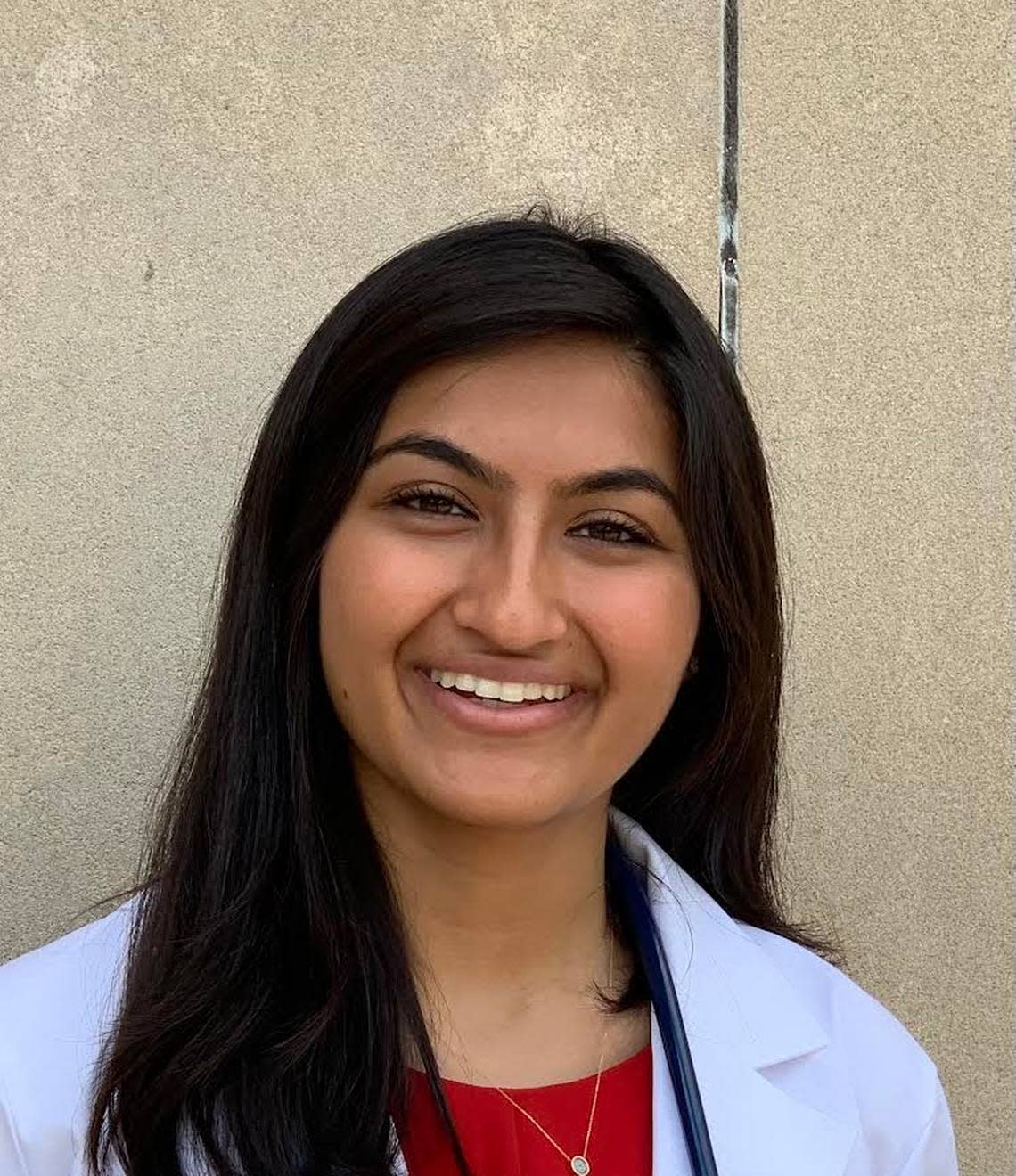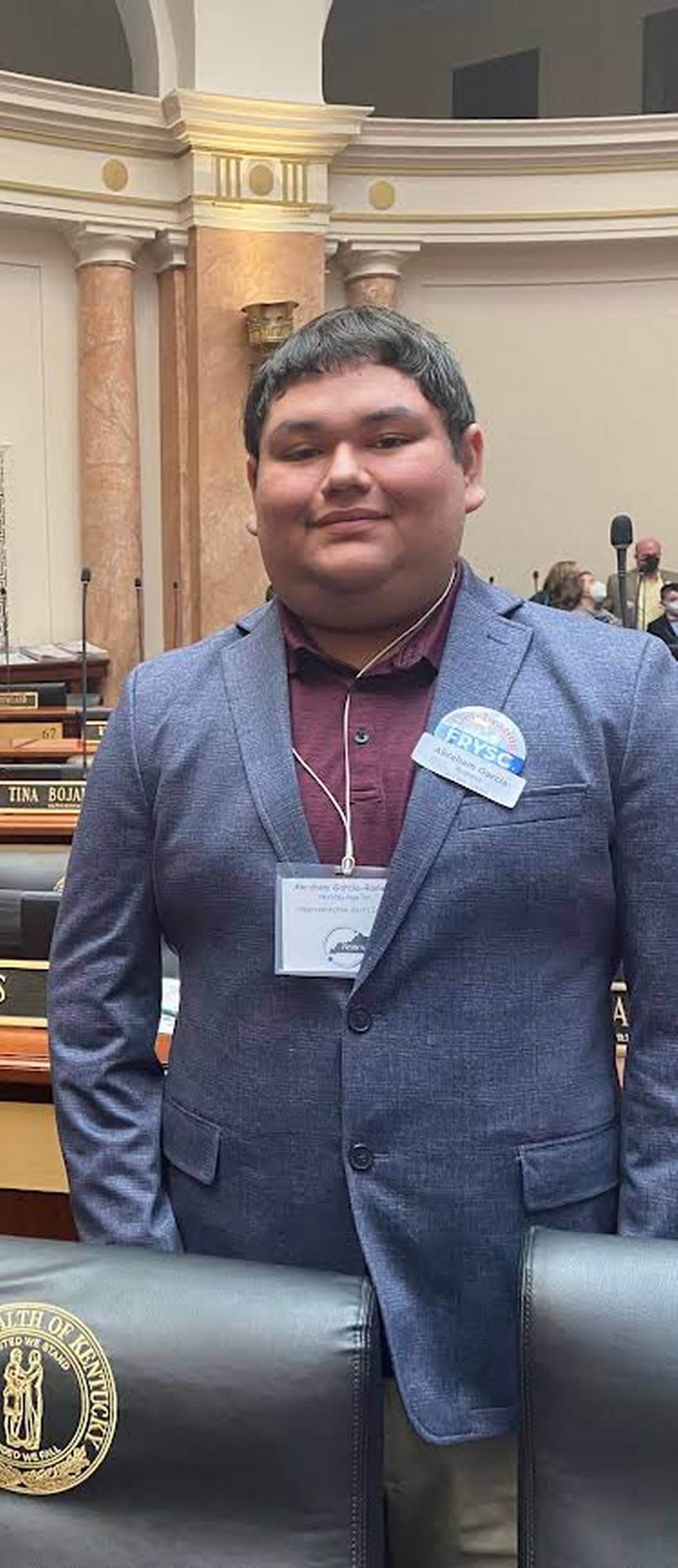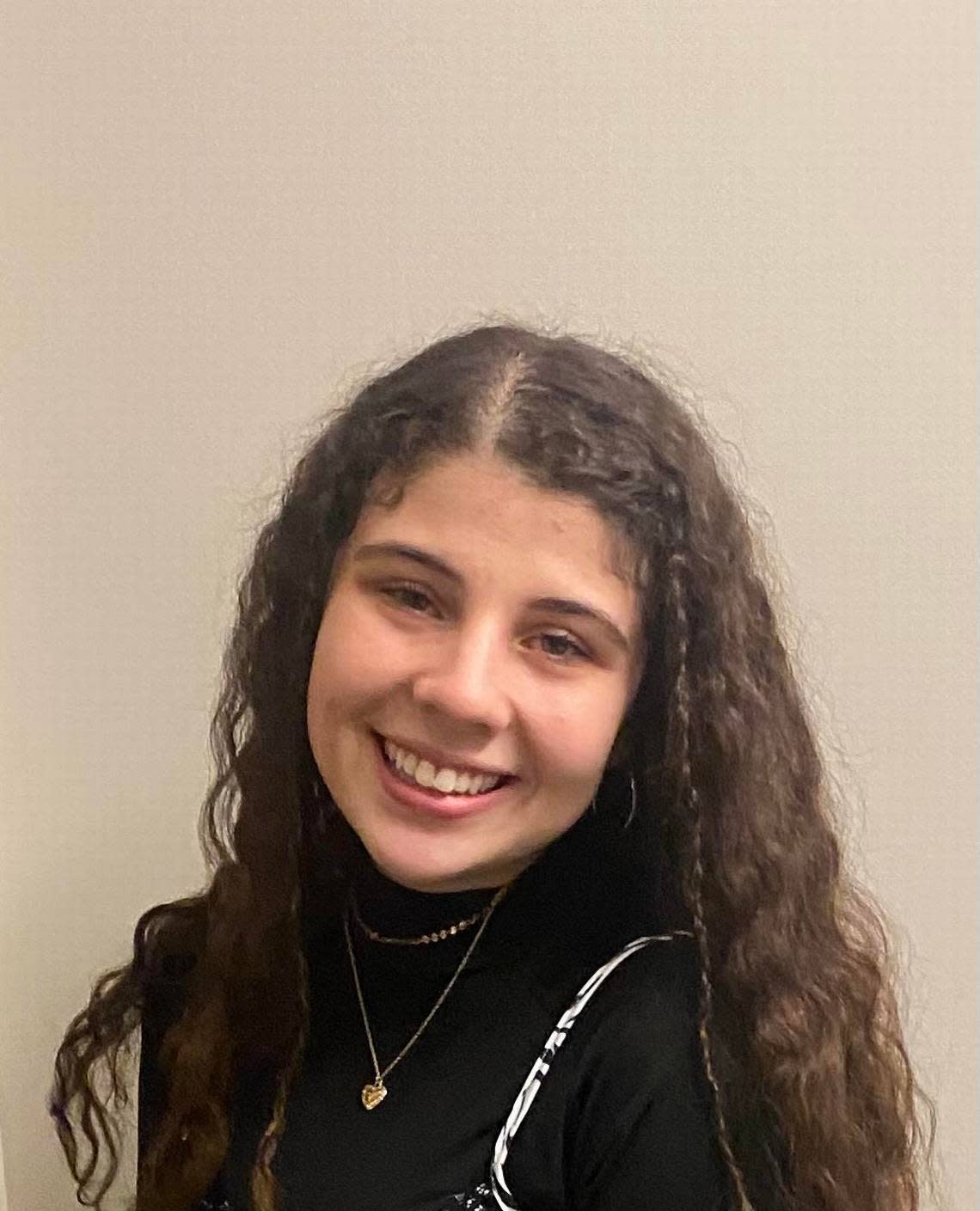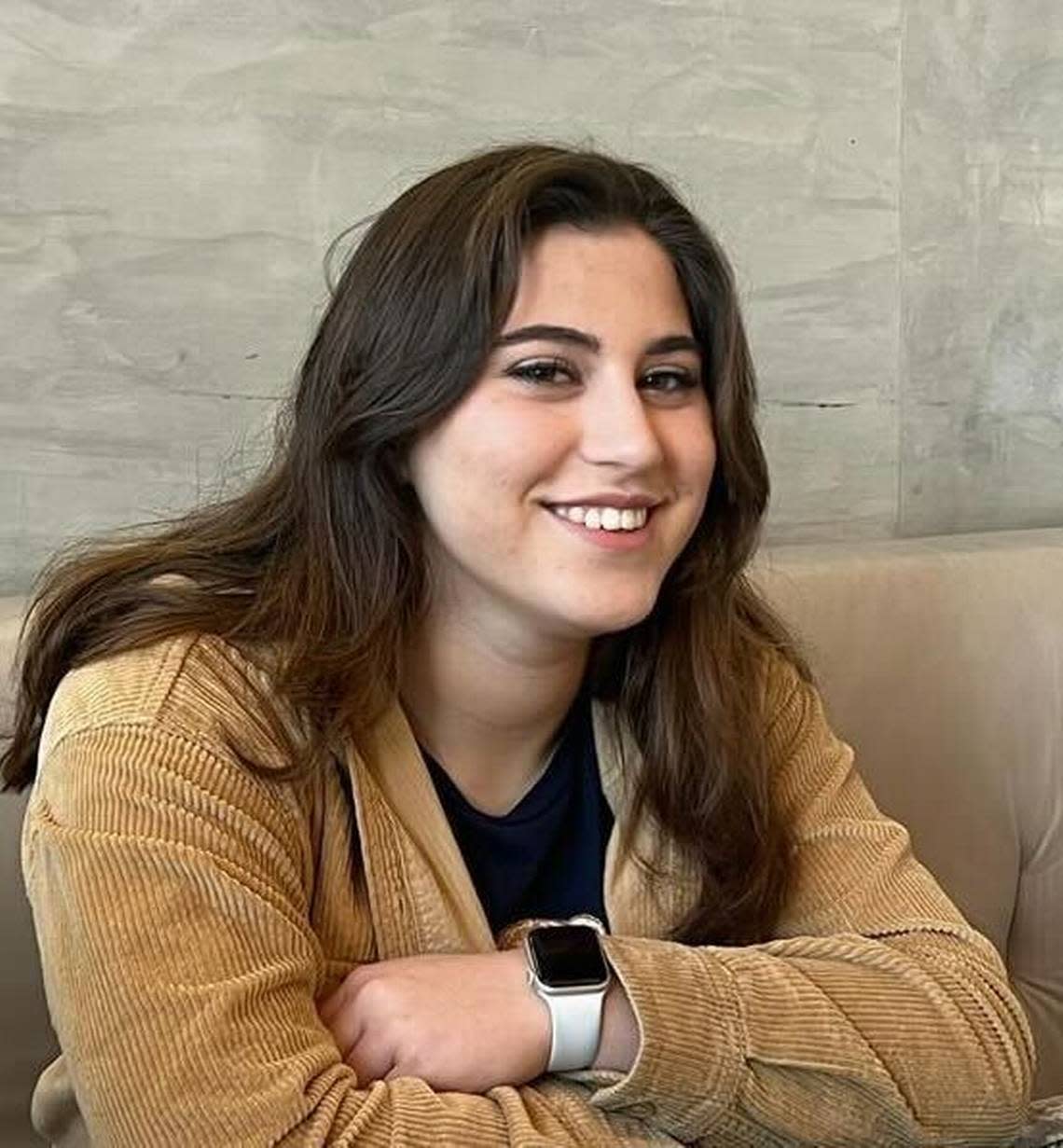Young Kentuckians say state’s trigger law banning abortions makes them ‘scared’ for future
Editor’s Note: A photo included with this story has been replaced with the correct photo of student Tala Saad.
It has always been the dream of Meghana Kudrimoti, a 2015 graduate of Lexington’s Paul Laurence Dunbar High School, to become a reproductive physician at a Planned Parenthood in Kentucky or the Lexington Public Health Department.
“It is still my dream,” said the University of Kentucky graduate who is now a fourth year medical student in Ohio, “I just don’t know how it will be possible now.”
On June 24, the U.S. Supreme Court voted that abortion is not a constitutionally-protected right and overturned the landmark Roe vs. Wade decision.
Kentucky’s trigger law defines a fetus and embryo as an “unborn human being,” and states that, if Roe is overturned, “no person may knowingly administer to, prescribe for, procure for, or sell to any pregnant woman any medicine, drug, or other substance with specific intent of causing or abetting the termination of the life of an unborn human being.”
On Thursday, a Louisville judge blocked enforcement of Kentucky’s trigger law banning nearly all abortions, permitting licensed providers to continue offering the procedure until at least July 6.
Kentucky students, from teenagers to those in their mid-twenties, are thinking about what Roe means for them.
‘Serving the communities that raised us’
The news of Roe v. Wade has been devastating for Kudrimoti, 25, and many of her peers in medical school who are passionate about providing comprehensive reproductive healthcare to their patients, she said.
Most grew up in Midwestern and Southern states such as Ohio and Kentucky, and stayed in those regions for school because they care so much about “serving the communities that raised us,” she said.
“But to put it simply, with this ruling, we just won’t be able to provide the care our patients deserve. I already made the difficult decision to leave Kentucky to go to a medical school in Ohio with abortion training opportunities,” she said.

Many of her classmates are reconsidering where they should apply for residency or fellowship in order to make sure they are capable of providing the full scope of reproductive healthcare.
“We are willing to go wherever we must,” Kudrimoti said. “ It cannot be overstated — abortion is healthcare. It is lifesaving healthcare. In a post-Roe world, patients, especially patients of color, will be impacted the most.”
Kudrimoti said that every single day, “abortion bans affect us all. “
The bans impact medical management of ectopic pregnancies, miscarriages and intrauterine fetal demise, she said. They criminalize patients who try to access the care they need, and force victims of rape and incest to continue pregnancies.
“People have had abortions since the beginning of time, and people will continue to have abortions after Roe, albeit with risks for both patients and providers,” she said.
Living in a trigger law state
Abraham Garcia-Romero, 18, who is headed to Berea College in the fall, said he lives in the small, rural and conservative Ohio County. He called living in a state with a trigger law “almost surreal.”
“I can not think of an idea more un-American than losing the right to bodily autonomy and dictating our own futures and destiny,” he said. “We always discussed the possibility of Roe v. Wade being overturned but never in a million years did we think it would actually be overturned.”
Garcia-Romero comes from a religious background and said he’s religious.
“The biggest difference between me and my family is that I am pro-choice,” he said. “I understand and respect what my Christian faith teaches about the sanctity of life, but I also understand that not everyone is subject to my religion and nor should they be.”

Sarah Belin, 20, graduated from Lexington’s Henry Clay High School in 2020. She is a student at University of Wisconsin- Madison and said she’s scared but empowered to live in a state with a trigger law.
“I am scared because this no longer feels like a democracy, and I fear this may only be the beginning,” said Belin. “However, I am also empowered because we have the duty, as Kentuckians, to demonstrate that this will not work and take the lead in fighting back. We must model for other states with impending trigger laws and legislation that will strip people of rights that we will not stand for this.”
Belin said it’s hard to imagine raising a family in a place where rights can depend on key parts of identity such as assigned gender, religion, and sexual orientation, “but Kentucky is my home.”

“I know the privilege it takes to be able to choose to stay or not and what I have realized over the past year is that I need to fight for the place I love to make it the place where I want to live,” she said.
Tala Saad, 17, a rising 12th grader at Kentucky Country Day School in Louisville, said she is scared about living in a state with a trigger law.
“Knowing that the Kentucky legislature was so quick to almost completely eliminate not only a right, but a medical necessity for many women, has made it clear how they view women in their state. Kentucky legislators have made it clear to women across the state that our basic needs come second to their political agendas,” Saad said. ” Saying it is disheartening would be an understatement. “
How are younger generations talking about reproductive rights?
Some students interviewed said they often speak with people in their circles about reproductive rights, and don’t see the issue as something that should be left out of the classroom.
Belin said she absolutely thinks reproductive rights and the issue of the overturning of Roe should be discussed in school. But who moderates the discussion — and how it is moderated — matters. At a minimum, it’s important for students to be able to express their thoughts on the topic and feel heard in a time when many are feeling helpless, Belin said.
Some of the people who helped Saad navigate her emotions around the Roe decision were her friends and family, she said.
“My first response to hearing about the overturning of this case was fear. Fear about not only what this means for my future, but for the future of girls across the state. It was my friends and family that I turned to to sort through these feelings, to make sense of what this means for the future,” she said. ”My second response was anger. Outrage at the fact that a country that touted freedom for all turned their back on that promise.”

Even before the overturning of Roe vs. Wade, it was not uncommon for Saad to talk about reproductive rights with friends. The fight for reproductive rights has become the face of a broader movement for gender equality, she said
“There is no way to talk about my life without talking about the barriers that myself, along with women across the country, face every day. While the overturning of Roe v Wade may have highlighted the social and cultural challenges that women face, it sadly (is) far from the beginning of anything new for us,” she said.
Kudrimoti thinks that abortions should be discussed in public school and college classrooms.
Although the typical abortion patient is already a parent when they have their first abortion, Kudrimoti says, students deserve to know their options and discuss their values openly with their peers.
“When I was in middle school here in Lexington, I had a back-and-forth discussion with a student about abortion through an online school assignment,” Kudrimoti said. “Many other students jumped into the debate and shared their opinion. It was an excellent way for me to learn about other viewpoints and develop my own opinions too.”
